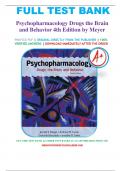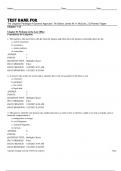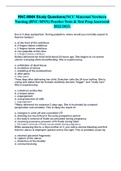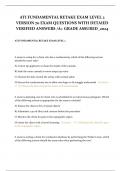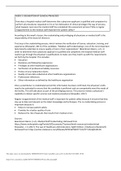Exam (elaborations)
Test Bank For Psychopharmacology: Drugs, the Brain and Behavior 4th Edition By Meyer, All Chapters Covered, A+ guide.
Test Bank For Psychopharmacology: Drugs, the Brain and Behavior 4th Edition By Meyer, All Chapters Covered, A+ guide.
[Show more]
